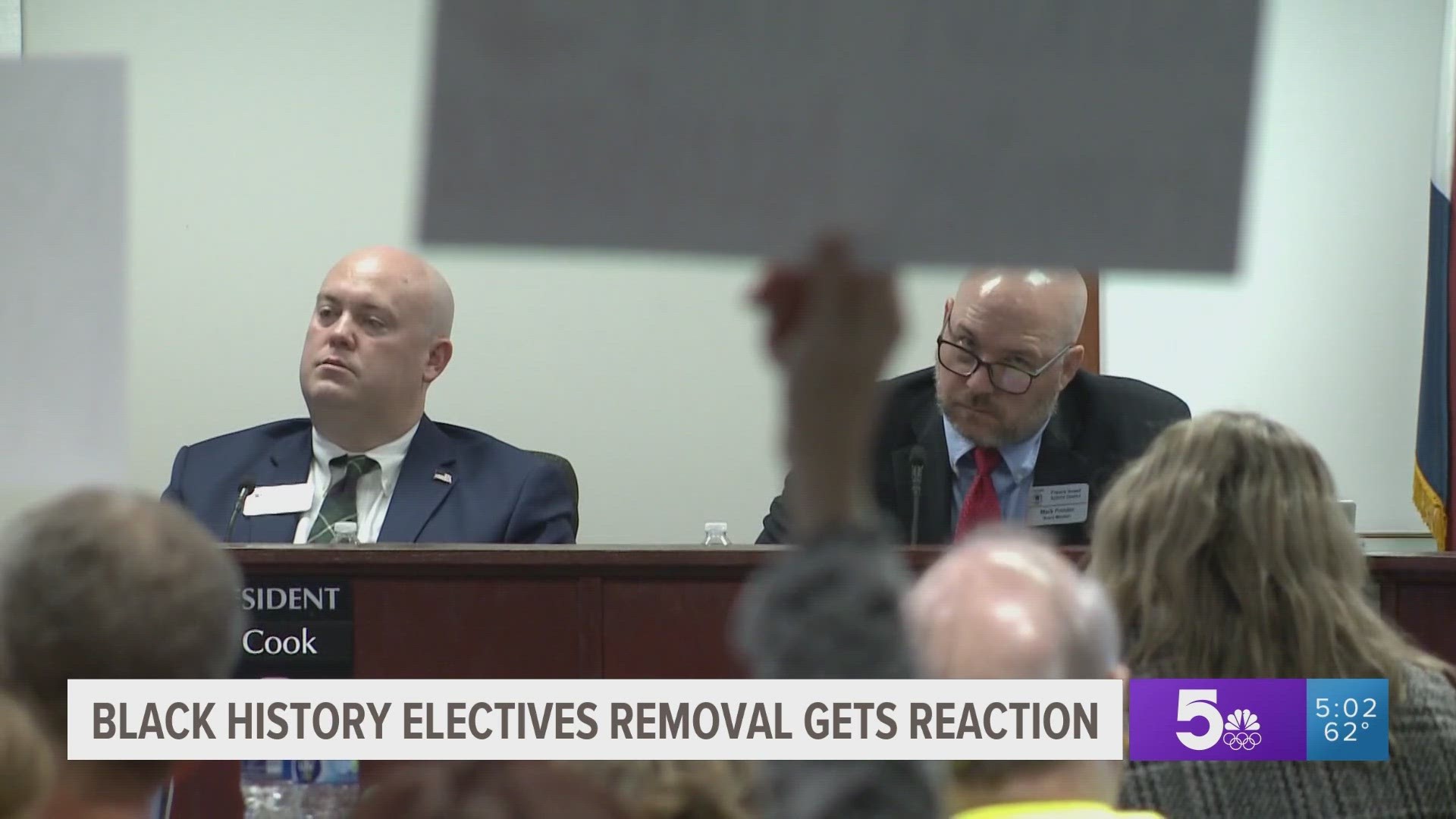ST. CHARLES COUNTY, Mo. — The Francis Howell School Board's decision to remove Black history electives from the curriculum of some of the district's high schools sparked a conversation about disunity.
Community members and academics weighed in this weekend on the polarizing issue, shedding light on the decision's impact.
A former student expressed concern about the strikeout and said, "To not allow students to see themselves in their classrooms, not have their history, work, past [and] families represented in their classrooms. That's what this is about."
This semester, a total of 60 students across three schools enrolled in the Black history courses, while 42 opted for Black literature, which has been in place for two years.
Walker, an alum of the district, provided a personal testimony, revealing her decision to bypass Francis Howell North due to what she called a lack of unity on campus.
"I experienced a lot of racist incidents when I was at Francis Howell North, so [I chose] to go to St. Charles Community College instead and obtain my associate's degree. [For] my junior and senior years I chose not to go to Howell North," she said.
St. Charles County councilman Mike Elam offered a contrasting perspective, suggesting that such courses might be better suited for the college level.
"Because today in public education, we need to focus on core development," he said. He added that grades and testing scores were needed.
Statements from board members suggest that the objection is not against Black history itself, but stems from concerns about the source — the Social Justice Standards developed by the Southern Poverty Law Center. Board members argue that this content teaches through a "social justice framework," adding another layer to the controversy.
Here is a statement from board member Randy Cook:
I do not object whatsoever to teaching black history or black literature—I encourage it; however, we voted to rescind approval of the Social Justice Standards developed by the Southern Poverty Law Center. These Social Justice Standards were a framework for the Black History and Black Literature courses that were rescinded. The use of these standards and the social justice lens through which two of these courses were written have been the topic of much discussion and two elections here in our community, going back to the summer of 2021. (I am confident you will find local news stories from summer 2021 when these courses and standards were adopted.) Again, I do not object to teaching black history and black literature per se; but I do object to teaching any subject through a social justice framework as defined by the Southern Poverty Law Center.
The topic is crucial because it comes at a time when efforts for the removal of critical race theory (CRT) in K-12 schools are being followed closely.
CRT Forward, an initiative of the Critical Race Studies Program at UCLA School of Law launched in 2021, showed 783 anti-CRT efforts introduced at the local, state and federal levels.
Dr. Willie Francois, assistant professor of liberation theology at New York Theological Seminary, emphasized the importance of learning Black history despite racial and class backgrounds.
"To learn Black history is to learn a fuller story of the American project and it invites us into making this a more perfect union. If that's turning people into activists, I guess I'm okay with that," he said.
Francois further noted that education aimed to better engage citizens and humans in the community.
“When we cut off pieces of that learning process we are inevitably condemning so many groups of people to non-participation, non-engagement [and] segregation. And we’ll continue to see the type of violent America that we've inherited from our forebearers,” Francois said.
The resolution and course offerings were targeted by five new board members, backed by the conservative political action committee Francis Howell Families. The absence of diversity among the seven-member board raises questions about the influence of money on policy decisions, Francois said.
“This is also the way that we have to be vigilant about how money impacts policy and how politicians even on a very local level are beholding to those who write checks and those who call shots in this country, in these district parties,” Francois added.
An inquiry was sent to the Southern Poverty Law Center to address the board's concerns about their work, but as of Sunday, no response was provided.
On Saturday, a group entitled "Students for Francis Howell" posted on Instagram and listed a petition to have the courses reinstated.

